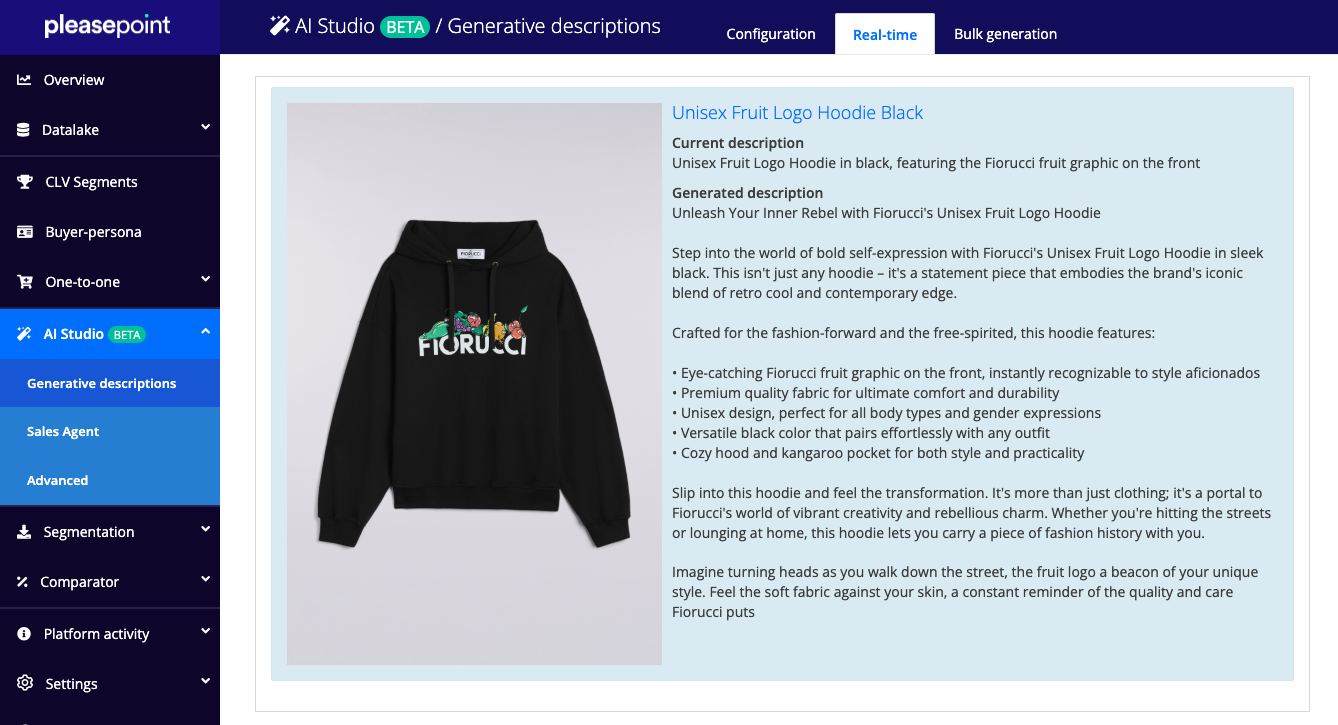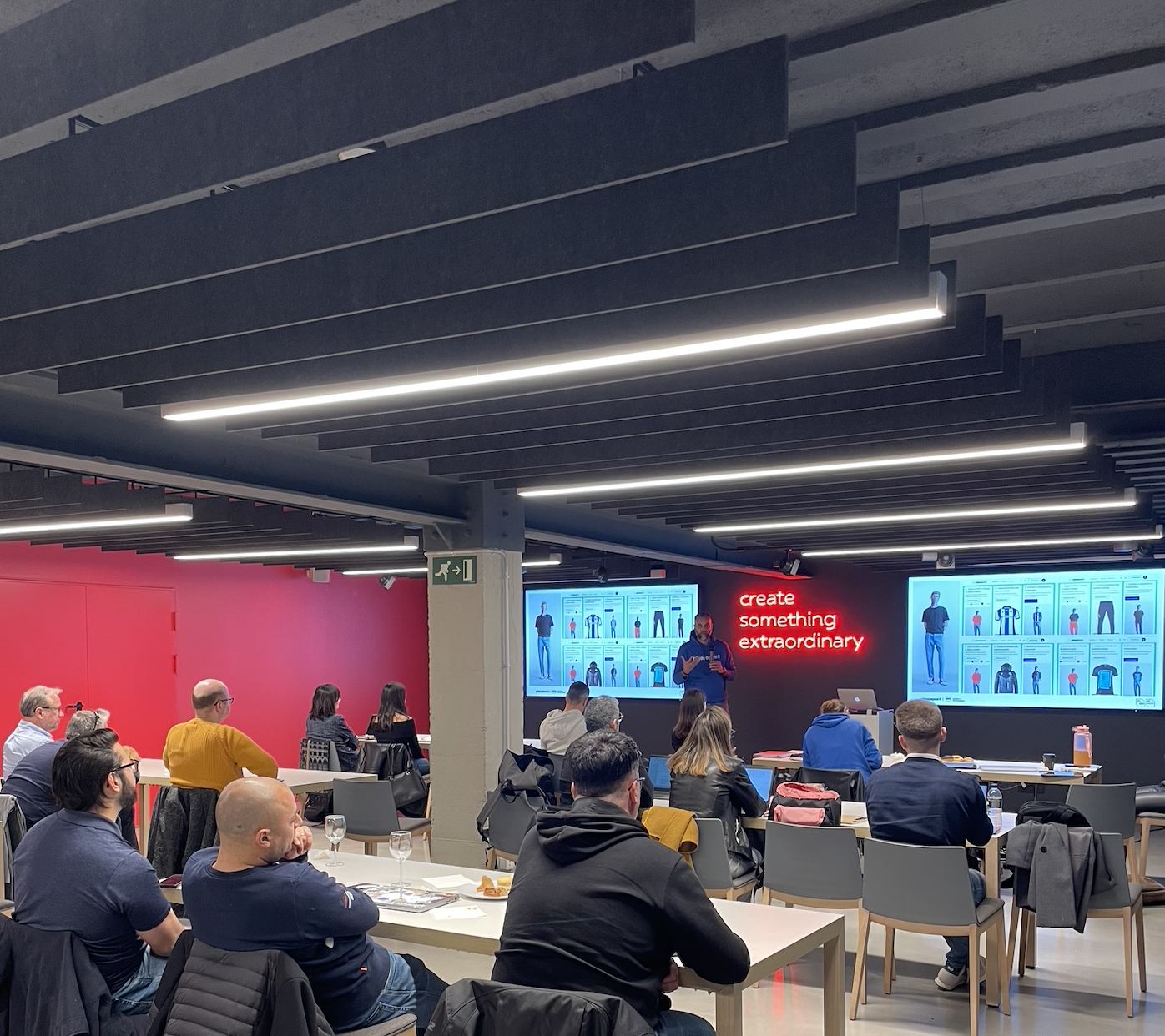
Privacy and the difference between a delightful and invasive experience
We are in an era where personalization is the key to building strong relationships with our customers through truly relevant communications. When we talk about personalization, we must always keep in mind that we are dealing with our customers' data and that privacy is very important—extremely important.

We are in an era where personalization is the key to building strong relationships with our customers through truly relevant communications. When we talk about personalization, we must always keep in mind that we are dealing with our customers' data and that privacy is extremely important.
Marketers and legal departments of companies often believe that they are dealing with two opposing ideas: personalization and privacy. But in reality, these are only seemingly opposite concepts. It may not seem like it, but both concepts are not mutually exclusive—in fact, they are quite the opposite.
Personalization and privacy both serve the same goal: caring for and satisfying our customers.
Consumers or online users are willing to use services or products that personalize the experience. Sharing our data doesn’t really pose a problem as long as the brand generates trust. Can you imagine Netflix without personalized recommendations?
To personalize, you must generate trust with your customer or user. Here are key points for generating trust:
- Inform online users about what information you will collect, how you will collect it, and why you are collecting it.
- Give online users the option to choose how their information will be used.
- If you share information with third parties, inform your online users, explain how it will be done, and let them choose.
- Assure your users that you have the appropriate mechanisms to protect their information against any attempts at data theft, accidental loss, or unauthorized use.
Utiliza la Inteligencia de Pleasepoint para aumentar el ROI de tus acciones de CRM, marketing y publicidad digital.
Pleasepoint es la plataforma de machine learning que segmenta los clientes de tu CRM con predicciones de compra por cliente y personaliza tu marketing digital a escala.
Solicita una demo para ver las ventajas de trabajar la segmentación de clientes utilizando el Customer Lifetime Value, personalizando según el perfil de buyer-persona basado en datos y la recomendación de productos one-to-one.
Solicita una demoWhat data can we use for content and communication personalization?
When working on personalizing communications or content, there are different types of data to use. Here are the three levels of information to collect and utilize:
- Anonymous information: This is the information generated when visiting a website without using any additional technology, meaning it is the standard information sent when browsing a webpage. This includes the IP address, web browser, operating system, device type, language, or local time.
- Non-identifiable personal information: This refers to information that, on its own, cannot identify a user. This type of information can be requested directly from the user (such as age, date of birth, education, gender, or hobbies) or automatically generated through browsing or cookies. In both cases, it does not identify the user but allows for creating a more complete profile.
- Personally identifiable information: Now we refer to information that allows us to unmistakably identify a user. This includes email, name, address, phone number, credit card, or ID number. This information is always provided by the user, either when signing up or making a purchase.
Psychologically, there is a big difference between personalization when you have already purchased or are a user of a platform versus when you have not yet shared any data with that company or website.
When browsing on a computer or mobile device, we react similarly to how we do in real life. This example will clarify what I mean:
When you go to a restaurant, and the waiter remembers your drink, the doneness of your steak, and your preferred coffee, it’s a great experience. However, if someone stops you on the street and asks how your wine from last night was, it feels invasive. It’s the same on the Internet.
Use common sense to avoid creating invasive situations
A marketing campaign can be delightful or invasive, depending on the context. Imagine being in a physical store with a charming salesperson helping you find what you need. Now, imagine that same salesperson shows up at your home at 10 PM to recommend a product. The situation goes from delightful to terrible. Only the context has changed.
In general, most customers prefer asynchronous communications, like email, over real-time communications like banner ads or push notifications. Look at these statistics. Can you draw any conclusions?
- 66% of customers appreciate an email about a product they have shown interest in.
- 24% of customers appreciate a banner ad about a product they have shown interest in.
- 50% of American consumers appreciate a welcome email.
- 34% of British consumers appreciate a welcome email.
- 52% of millennials expect brands to congratulate them on their birthdays.
- 21% of consumers over 65 years old expect brands to congratulate them on their birthdays.
With this data in mind, I’m unable to draw any clear conclusions. I also cannot identify a specific course of action. Actually, I can—one conclusion stands out: Ensure that I create a profile based on the personalization each customer desires. To be effective, we need to understand what kind of personalization each individual prefers.
Si has llegado hasta aquí esto te interesa.
Pleasepoint es la plataforma de machine learning que segmenta los clientes de tu CRM con predicciones de compra por cliente y personaliza tu marketing digital a escala.
Solicita una demo para ver las ventajas de trabajar la segmentación de clientes utilizando el Customer Lifetime Value, personalizando según el perfil de buyer-persona basado en datos y la recomendación de productos one-to-one.
Solicita una demoGive your customers full control over their data
Customers must have full control over their data. Companies that give users control over their data come out ahead. Companies like Google and Amazon do this.
We have three ways to give customers or users control over their data:
- Data editing: Allow the user to determine which data the company can use for recommendations, offering the option to delete part or even all of their purchase history.
- Explain why: Explain to your user why you made a particular recommendation. This helps them understand why you think this communication is relevant to them. This trick helps users understand the recommendation and prevents it from seeming like a mistake.
- Feedback loop: Allow the user to give feedback on recommendations, letting customers tell you whether the recommendation was good or bad. This way, artificial intelligence models will learn and make better recommendations in the future.
A clear example I’ve seen lately is how brands handle Father’s Day or Mother’s Day campaigns. Brands know these can be painful days for some people, and increasingly more brands are offering the option for customers to choose whether they want to receive communications during these specific days.
Remember this: A marketing campaign can be delightful, invasive, or disastrous, depending on the context of the situation.
You can start personalizing your marketing campaigns responsibly and profitably using predictive marketing techniques.
También te puede interesar...

Success Case: How Norauto personalizes their campaigns.
Norauto is clear: They need a data strategy for their campaigns.

Ecommerce in Verdiblanco: One-to-One Recommendation (AI).
The goal is to offer a unique experience to fans at every touchpoint.

Generate Perfect Product Descriptions with AI.
Creating attractive and unique descriptions can be an exhausting and costly task, which is why we teach you how to do it with AI.
Don't miss the upcoming Pleasepoint events!
Join our events and discover the best AI use cases. Learn from experts, participate in live demos, and access success stories that will drive your business.
Amazon Web Services (AWS) Software Partners (ISV).
We are ISV (Independent Software Vendor) partners of Amazon Web Services (AWS) and have been selected for the ISV-Accelerate program.


"With Pleasepoint, we have moved from the traditional campaign management model to a more dynamic, segmented, and enriched customer model, personalizing CRM campaigns and improving the conversion of our e-commerce channel customers."
Josep Jarque
Digital Project Manager & IT Architect"The implementation of one-to-one personalization has allowed us to generate much more interesting content for users, as well as foster loyalty, improve the shopping experience, and generate additional sales through personalized recommendations."
Jose Antonio Linde
COO of Condisline"Throughout all these years of collaboration, we have closely witnessed the growth and evolution of the Pleasepoint platform. With predictive marketing, our results were very satisfactory. With one-to-one personalization, we have been able to enrich the information and design individual actions and offers. As a result, we are achieving greater customer retention and loyalty."
Alberto Elizondo
Digital Transformation at Real Sociedad"Working with Pleasepoint allows us to discover new customer purchasing behaviors, refine the implementation of campaigns based on their shopping journeys, and anticipate customer needs. Thanks to all this, we are improving personalization and enhancing the performance of our campaigns."
Belén Pérez Benavente
Customer Knowledge and Loyalty Manager at Norauto Spain"Pleasepoint has enabled us to take a leap in the analysis and segmentation of our customer base. Thanks to its personalization and predictive capabilities, we can now design more precise and efficient CRM campaigns based on purchasing behavior, optimizing our results, allowing us to innovate and add value."
Manuel Caamaño De Melo
Data Scientist at Norauto Spain"Thanks to Pleasepoint, our digital library is not only more intuitive and efficient, but also allows users to access relevant legal content with unparalleled speed and precision. This has transformed the way our clients interact with legal resources, offering a service that adapts to their needs almost naturally."
Òscar Gallud
CEO of Atelier LibrosOur clients vouch for us.














